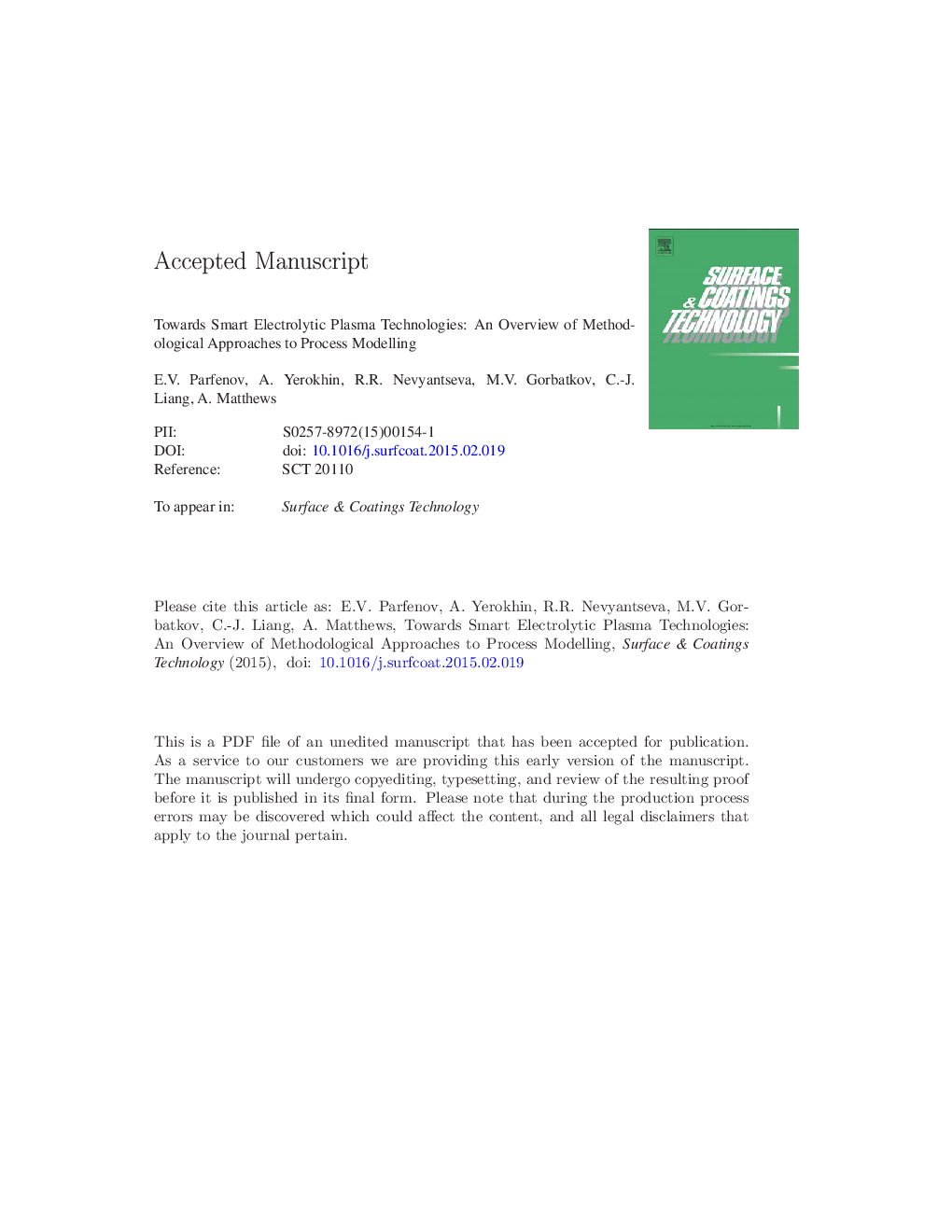| Article ID | Journal | Published Year | Pages | File Type |
|---|---|---|---|---|
| 8026748 | Surface and Coatings Technology | 2015 | 73 Pages |
Abstract
This paper reviews the present understanding of electrolytic plasma processes (EPPs) and approaches to their modelling. Based on the EPP type, characteristics and classification, it presents a generalised phenomenological model as the most appropriate one from the process diagnostics and control point of view. The model describes the system 'power supply-electrolyser-electrode surface' as a system with lumped parameters characterising integral properties of the surface layer and integral parameters of the EPP. The complexity of EPPs does not allow the drawing of a set of differential equations describing the treatment, although a model can be formalised for a particular process as a black box regression. Evaluation of dynamic properties reveals the multiscale nature of electrolytic plasma processes, which can be described by three time constants separated by 2-3 orders of magnitude (minutes, seconds and milliseconds), corresponding to different groups of characteristics in the model. Further developments based on the phenomenological approach and providing deeper insights into EPPs are proposed using frequency response methodology and electromagnetic field modelling. Examples demonstrating the efficiency of the proposed approach are supplied for EPP modelling with static and dynamic neural networks, frequency response evaluations and electromagnetic field calculations.
Keywords
EPPOPE-CVDNDREPCsCOMSOLGRNNRMSNARXEPPEPSCHigh-power impulse magnetron sputteringPlasma electrolytic oxidationEISAlternating currentDirect CurrentGeneral Regression Neural NetworkElectrochemical impedance spectroscopysmart technologyPhenomenological modelNegative differential resistancefrequency response Plasma enhanced chemical vapour depositionElectrolytic plasmaPEOSCR
Related Topics
Physical Sciences and Engineering
Materials Science
Nanotechnology
Authors
E.V. Parfenov, A. Yerokhin, R.R. Nevyantseva, M.V. Gorbatkov, C.-J. Liang, A. Matthews,
